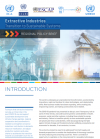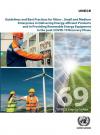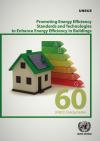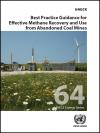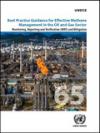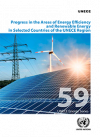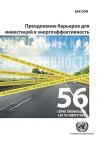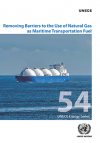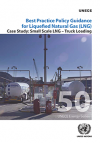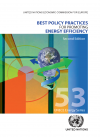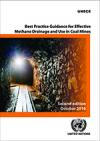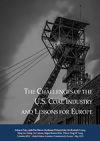Publications
Displaying Results 21 - 40 of 86
- English
The COVID-19 pandemic has presented an abrupt, even if temporary, halt to some of these trends, and underscored systemic vulnerabilities in health, economic, social and other systems, including those related to energy and industry. Failure to transition quickly to more sustainable systems will perpetuate these vulnerabilities, while also jeopardizing the fight against climate change and
- Pусский
- Français
- English
Micro-, small and medium enterprises (MSME) are prominent in sectors affected by the COVID-19 pandemic. MSME in the energy efficiency and renewable energy sectors were implementing innovative, circular, green and sustainable initiatives before the onset of the COVID-19 pandemic, so they are well-placed to contribute to the post-COVID-19 recovery. However, on both the supply and demand sides MSME
- English
Promoting Energy Efficiency Standards and Technologies to Enhance Energy Efficiency in BuildingsECE Energy Series No. 60Geneva, 2020Buildings today are responsible for approximately one third of total final energy consumption and account for almost 40 percent of carbon dioxide emissions. Advanced technical solutions
- English
The Best Practice Guidance for Effective Methane Recovery and Use from Abandoned Coal Mines (BPG on AMM) is aimed at raising awareness
- English
The Best Practice Guidance for Effective Methane Recovery and Use from Abandoned Coal Mines (BPG on AMM) is aimed at raising
- English
The document provides guidance for developing and implementing effective practices for monitoring, reporting and verifying (MRV) methane emissions from the oil and gas sector. It also provides guidance on remediation practices. The document is meant to serve as a resource for a broad audience, including owners and operators of oil and gas facilities and policymakers at all levels of government.
- English
- English
- English
Removing Barriers to the Use of Natural Gas as Maritime Transportation FuelENERGY SERIES No. 54This report on Removing Barriers to the Use of Natural Gas as Maritime Transportation Fuel is another step in ourexploration of the catalytic role of natural gas in attaining the Sustainable Development Goals, and in
- English
Best Practice Policy Guidance for Liquefied Natural Gas (LNG)Case Study: Small Scale LNG – Truck LoadingENERGY SERIES No. 50The transportation of Liquefied Natural Gas (LNG) via truck loading is a fast growing vector of natural gas delivery and the main alternative to supply via pipelines. According to the
- English
- English
- English
The UNECE Group of Experts on Coal Mine Methane (CMM) has released the second edition of the Best Practice Guidance for Effective Methane Drainage and Use in Coal Mines. Since the first edition was published in 2010, the industry practice and regulations have evolved, and this second edition captures the most critical developments. The second
- English
Experience in the Europe & CIS Region with Clean Energy -UNDP, GEF and UNECEThe sixth day of October 2016 was a historic day for global efforts to combat climate change. The Paris Agreement entered into force as more than 55 countries representing 55% of total global greenhouse gas emissions have now
- English
From the beginning of the twenty first century economic, social, and political forces have been threatening the historical dominance of coal for power generation. In this context, the UNECE Group of Experts on Coal Mine Methane (CMM) presents you with a new paper titled The Challenges of the
- English
The Role of Gas in Sustainable Energy (Booklet - December 2015)Liquefied natural gas (LNG) – towards global gas marketsRecent market developments point to a fundamental change in the role of Liquefied Natural Gas (LNG) in the global energy landscape. The use of LNG to transport natural gas is poised to grow dramatically
- English
Methane Management – An Economic Opportunity for Mitigation (Booklet - December 2015)Proper management of methane from source to use in extractive industries will be an effective means of reducing emissions of an intensive greenhouse gas and short lived climate pollutant. Methane is the second most important greenhouse
- English
Energy Efficiency – Getting more from less (Booklet - December 2015)Improving energy efficiency contributes to energy security, better environment, quality of life, and economic well-being for all. Energy efficiency is called “the first fuel” as it is the best way of getting more out of existing resources


